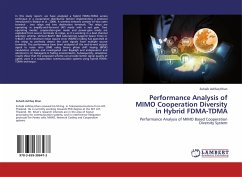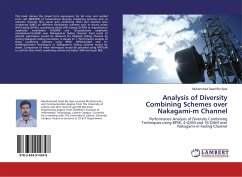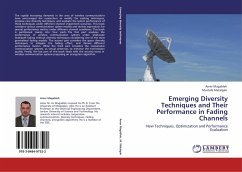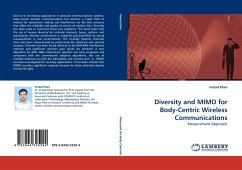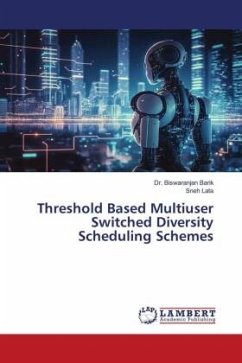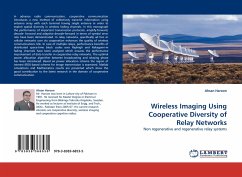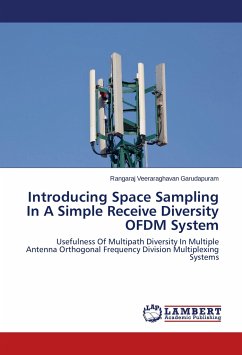In this study report, we have analyzed a hybrid FDMA-TDMA access technique in a cooperative distributive fashion implementing a protocol introduced in (Nabar et al., 2004). A wireless network consists of two users terminal , two relays and two destination terminals. The relays are operating in amplify-and-forward (AF) mode with a xed gain. Two operating modes: cooperation-gain mode and power-gain mode are exploited from source terminals to relays, as it is working in a best channel selection scheme. Vertical BLAST (Bell Laboratories Layered Space Time) or V-BLAST with minimum mean square error (MMSE) nulling has operated at the relays to perfectly detect the joint signals from multiple source terminals. The performance have been analyzed of the end-to-end output signal to noise ratio (SNR) using binary phase shift keying (BPSK) modulation scheme and investigated over Rayleigh and independent and identical (i.i.d.) Nakagami-m fading environments. Subsequently, simulation results show that the proposed scheme can provide better signal quality of uplink users in a cooperation communication systems using hybrid FDMA-TDMA technique.
Bitte wählen Sie Ihr Anliegen aus.
Rechnungen
Retourenschein anfordern
Bestellstatus
Storno

